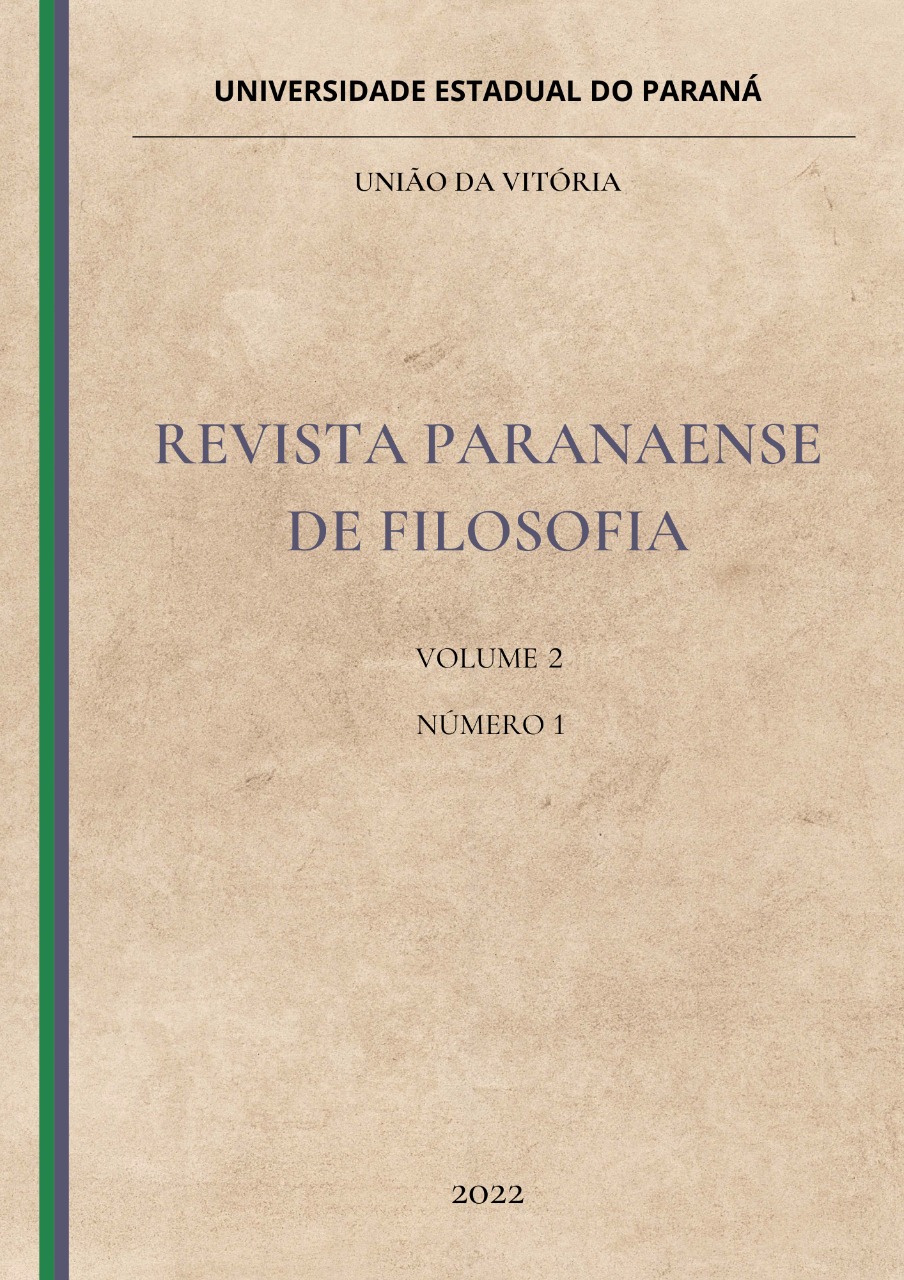THE CONCEPTION OF FAMILY RESEMBLANCES AND THE DEVELOPMENT OF WITTGENSTEIN'S CONCEPTION OF ETHICS
DOI:
https://doi.org/10.33871/27639657.2022.2.1.6721Keywords:
Wittgenstein, Ethics, Conception of Family Resemblances, Standard ReadingAbstract
This paper’s goal is to argue against the standard reading on the development of Wittgenstein’s conception of ethics, in particular, against the role it ascribes to the conception of family resemblances in this context. According to the proponents of this reading Wittgenstein’s conception of language in the Tractatus Logico Philosophicus (TLP) restricts his conception of ethics. Thus it makes both conception incompatible. This incompatibility could only be resolved with the development of his conception of language, which permitted a more overt treatment towards ethics, especially because of the conception of family resemblances. For these authors, this leads to a change in Wittgenstein’s conception of ethics. Against this reading we will argue that, in fact, there is a strong sense of continuity in Wittgenstein’s conception of ethics. For, as we will show, Wittgenstein reiterates key-points of this conception even in his later thoughts, such as, the non-empirical and necessary nature of ethics. We will then conclude that this conception is recontextualized in the discussion regarding the conception of family resemblances.
Downloads
References
ARISTÓTELES. Ética a Nicômaco. São Paulo: Editora Atlas, 2009.
BAKER, G. P.; HACKER, P. M. S. Wittgenstein: understanding and meaning. Part I. Chichester: Wiley-Blackwell, 2005a.
BAKER, G. P.; HACKER, P. M. S. Wittgenstein: Understanding and Meaning. Vol. 1. Part II. Exegesis. Chichester: Wiley-Blackwell, 2005b.
BEN-YAMI, H. Family Resemblances and Vagueness. In: GLOCK, H.-J.; HYMAN, J. (Eds.). . A companion to Wittgenstein. Hoboken: Wiley-Blackwell, 2017. p. 407–419.
DALL’AGNOL, D. SEMELHANÇAS DE FAMÍLIA NOS USOS DE ‘BOM’. ethic@ - An international Journal for Moral Philosophy, v. 15, n. 2, p. 216–230, 2016.
GAITA, R. The Philosopher’s Dog. 2. ed. London and New York: Routledge, 2004a.
GAITA, R. Good and evil: an absolute conception. 2. ed. London; New York: Routledge, 2004b.
GLOCK, H.-J. Dicionário Wittgenstein. Rio de Janeiro: Jorge Zahar Editor, 1998.
HACKER, P. M. S. Insight and Illusion: Themes in the Philosophy of Wittgenstein (Revised Edition). Oxford: Clarendon Press, 1986.
JOHNSTON, C. The Picture Theory. In: GLOCK, H.-J.; HYMAN, J. (Eds.). . A companion to Wittgenstein. Hoboken: Wiley Blackwell, 2017. p. 141–158.
KLAGGE, J. C. Wittgenstein and von Wright on Goodness. Philosophical Investigations, v. 41, n. 3, p. 291–303, 2018.
KUUSELA, O. Wittgenstein and the unity of good. European Journal of Philosophy, v. 28, n. 2, p. 428–444, 2020.
PERISSINOTTO, L. ‘The Socratic Method!’: Wittgenstein and Plato. In: PERISSINOTTO, L.; CÁMARA, B. R. (Eds.). . Wittgenstein and Plato: Connections, Comparisons and Contrasts. Basingstoke: PALGRAVE MACMILLAN, 2013. p. 48–71.
RHEES, R. Some developments in Wittgensteins ethics. The Philosophical Review, v. 74, n. 1, p. 17–26, 1965.
WAISMANN, F.; MCGUINESS, B. Wittgenstein und der Wiener Kreis. Frankfurt am Main: Suhrkamp, 1996.
WALKER, J. Wittgenstein’s earlier ethics. North American Philosophical Publications, v. 5, n. 4, p. 219–232, 1968.
WITTGENSTEIN, L. Cadernos 1914-1916. Tradução: João Tiago Proença. Lisboa: Edições 70, 2004.
WITTGENSTEIN, L. Conferência sobre Ética. In: Ética e Linguagem: uma introdução ao Tractatus de Wittgenstein. Florianópolis, São Leopoldo: Editora da UFSC, Editora Unisinos, 2005. p. 215–224.
WITTGENSTEIN, L. Tractatus logico-philosophicus ; Tagebücher 1914-1916 ; Philosophische Untersuchungen. 22. ed. Berlin: Suhrkamp, 2016.
WITTGENSTEIN, L. Tractatus logico-philosophicus. Tradução: Luiz Henrique Lopes Dos Santos. 3. ed. São Paulo: Edusp, 2017.
WITTGENSTEIN, L.; MOORE, G. E. Wittgenstein: Lectures, Cambridge 1930 – 1933 From the Notes of G. E. Moore. Cambridge, United Kingdom: Cambridge University Press, 2016.
Downloads
Published
How to Cite
Issue
Section
License
Copyright (c) 2022 Revista Paranaense de Filosofia

This work is licensed under a Creative Commons Attribution 4.0 International License.
Artigo publicado em acesso aberto sob a licença Creative Commons Attribuition 4.0 International Licence.
Os autores cedem o direito exclusivo de primeira publicação à Revista, sendo o trabalho licenciado simultaneamente sob a licença Creative Commons Attribution 4.0 International (CC BY). Esta licença permite que terceiros remixem, adaptem e criem a partir do trabalho publicado, atribuindo o devido crédito de autoria e publicação inicial neste periódico. Os autores têm autorização para assumir contratos adicionais separadamente, para distribuição não exclusiva da versão do trabalho publicada neste periódico (por exemplo: publicar em repositório institucional, em site pessoal, publicar uma tradução ou como capítulo de livro), com reconhecimento de autoria e publicação inicial neste periódico.



